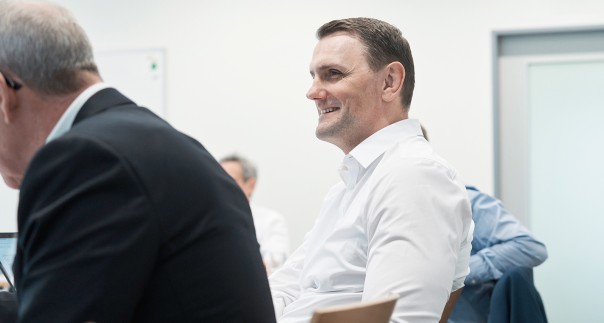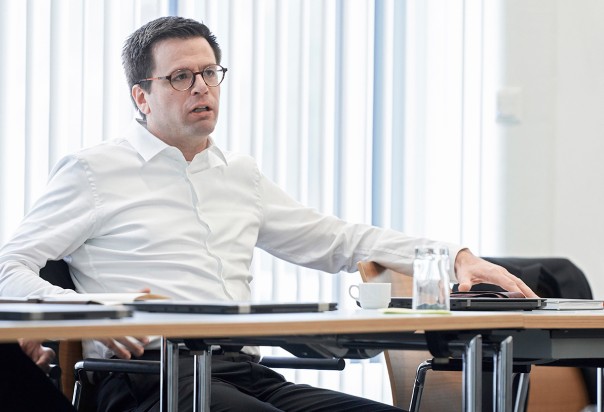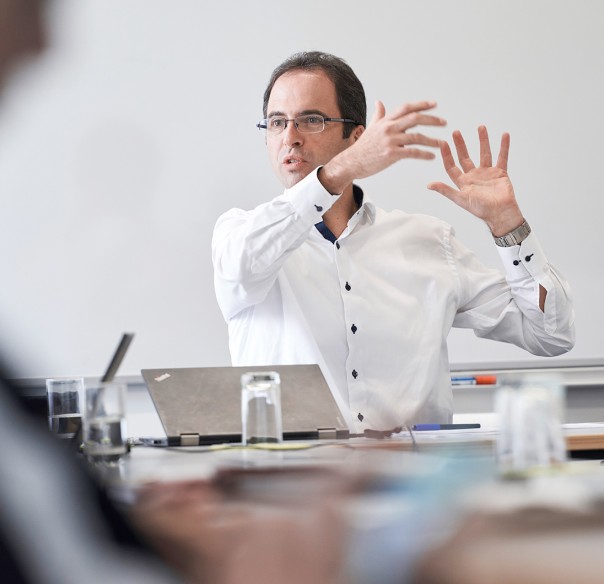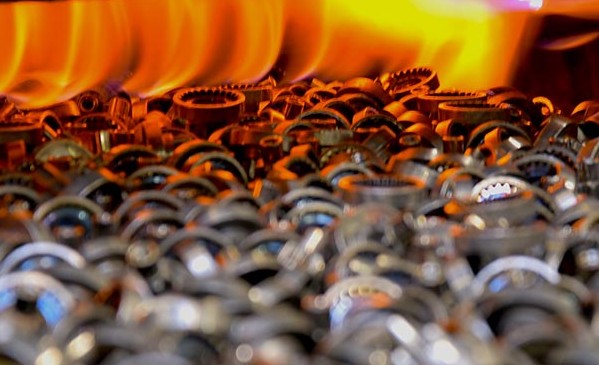SFS: "Hello and thank you for taking the time to talk with us about your career pathways at SFS, and about the importance of sustainable leadership. All three of you began your careers at SFS when you were quite young. Today you hold Group, segment or divisional leadership roles. Looking back, how would you describe your career pathways at SFS?"
Jens Breu (JB): "It was an extremely exciting journey. And it still is. There was always a good balance, professional challenges on the one hand and employer encouragement and support on the other. I experienced personal growth and was given many (cross-functional) responsibilities. Regular discussions with my supervisors and various training and development courses always gave me a good feeling: I was being guided up a career ladder, together with my colleagues."
Iso Raunjak (IR): "I feel the same way. Looking back on my career history at SFS, I have always been given challenges and support. This certainly had a lot to do with my immediate supervisors. They pushed me, encouraged me and always gave me new challenges in the form of new tasks and projects."
Urs Langenauer (UL): "Challenge is the key word; looking back, I grew with every new assignment and project assigned to me. At SFS, the challenges you’re given are an opportunity to prove yourself and you need to seize them. These opportunities were followed or accompanied by training and development courses."








